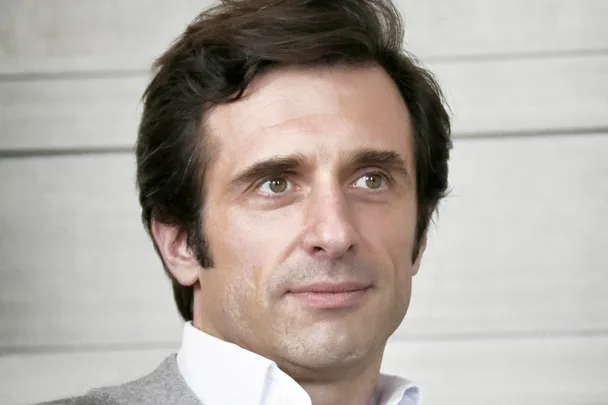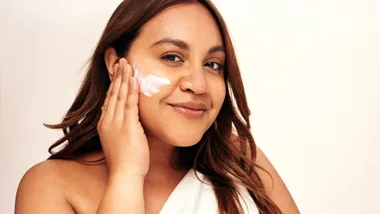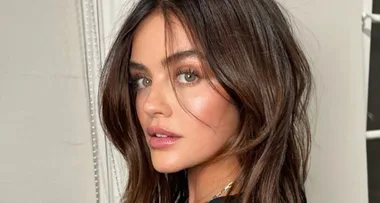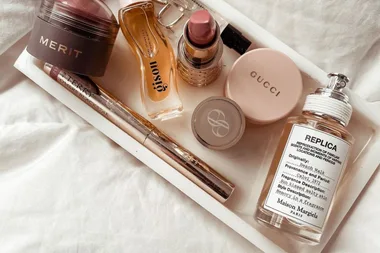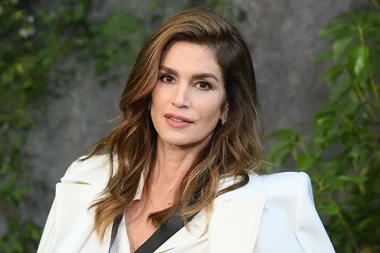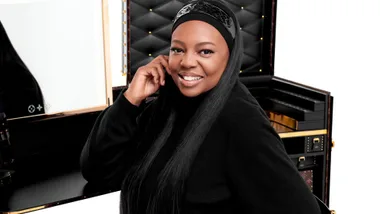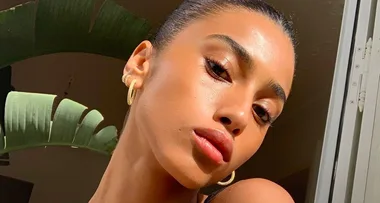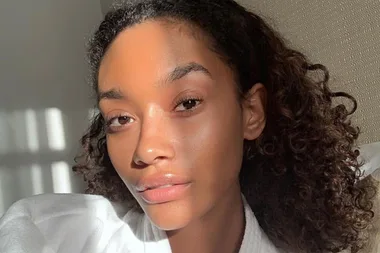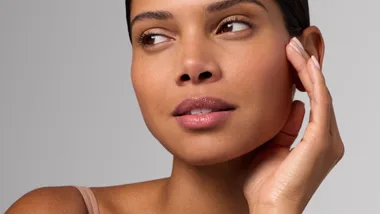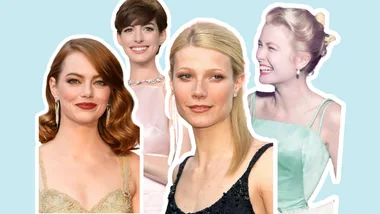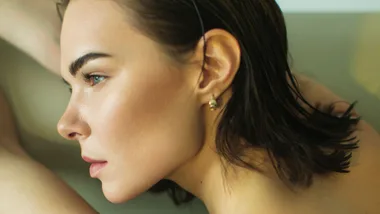Jackie Frank: I’m really interested to understand — what comes first? Is it the scent? Is it the emotion? Is it the woman?
Olivier Polge: What comes first is the scent. The emotion and the scent are intimately linked because the scent evokes an emotion.
JF: But different scents have different emotions.
OP: Yes, yes, so it’s an impression I would say. It took me a few years [to create]. I’m not saying I think about it every day because when you create a scent, the best [way] is to take your time. To step back and live with it; you have to remember that a fragrance lives a little bit. Raw materials and ingredients mixed together; sometimes it takes you a couple of weeks to realise that you’ve grasped something. So the more comfortable way to create a fragrance is to take your time.
JF: But when did you started to think about it?
OP: I see so many fragrances coming out so Gabrielle had to be a fragrance true to the Chanel identity and it had to be different. My idea and the impression was that the Chanel fragrances are quite diverse and you always end up speaking about flowers. Even when they are less important [to the scent} flowers are the common thread among all Chanel fragrances.
JF: Which flowers are the most important to Chanel?
OP: Among the flowers I think jasmin is very important, or Jasmin-like flowers because Chanel scents are always quite constructed. When I say this word it reminds me of this quote from Coco Chanel to [Russian-born French perfumer] Ernest Beaux when he created Chanel N°5. She asked for an artificial fragrance. Artificial meaning constructed. She was constructing dresses and she wanted the fragrance to be constructed in the same way of mind. Not being a jasmin or a rose fragrance, she wanted a combination that would make the scent. This is why we often speak about abstract scent when we speak about N°5, but all of Chanel’s fragrances are quite constructed.
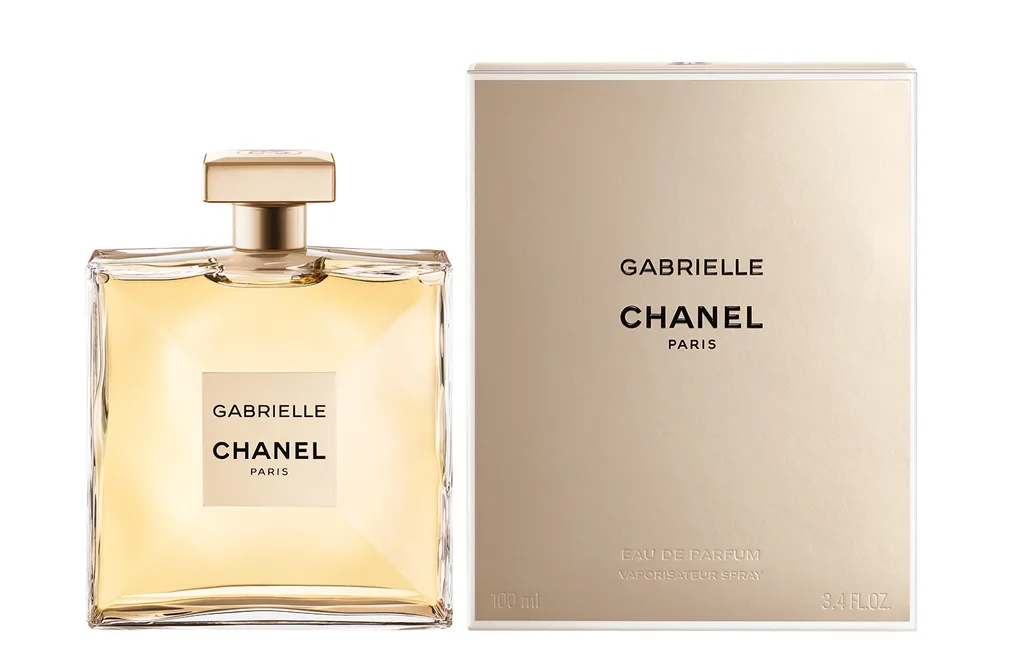
JF: And, in that construction…
OP: It’s intellectual, but I like to think that there is something you cannot grasp. My father when he was speaking about fragrances, would say that fragrance had to always keep something mysterious. I think that mystery is something we are always looking for.
JF: That’s really interesting, so you’re always looking for the mystery of the woman…
OP: At the end, it is the mystery that we want to give.
JF: Why did it feel like the right time to launch a new scent for Chanel?
OP: It is the right time because even although Chanel has fragrances that express itself very well – obviously N°5 and Coco Mademoiselle – we need to say something new. We have to express our identity with the spirit of today. We can put a new light, or another light, on our identity.
JF: So what type of woman, what type of style, or personality do you envisage wearing Gabrielle?
OP: I think that it is for a person who likes a floral fragrance, which is quite down to earth. But also, white flowers are quite outspoken types of scents.
JF: The emotion was very ‘female empowerment’ in terms of the campaign to me. What note in the fragrance do you think best reflects that?
OP: The flowers make it very feminine. I describe the fragrance as being very radiant, being very luminous, very floral. It’s also strong and feminine, or feminine and strong, I don’t know.
JF: It’s a great responsibility to create a fragrance for such an iconic house as the house of Chanel.
OP: Yes and because we don’t come up with a fragrance every other day… But at the same time I feel very lucky because Chanel has so many great fragrances with such an interesting and rich identity, which makes it easier for me somehow. The strong heritage is better than no heritage. It’s food for thought.
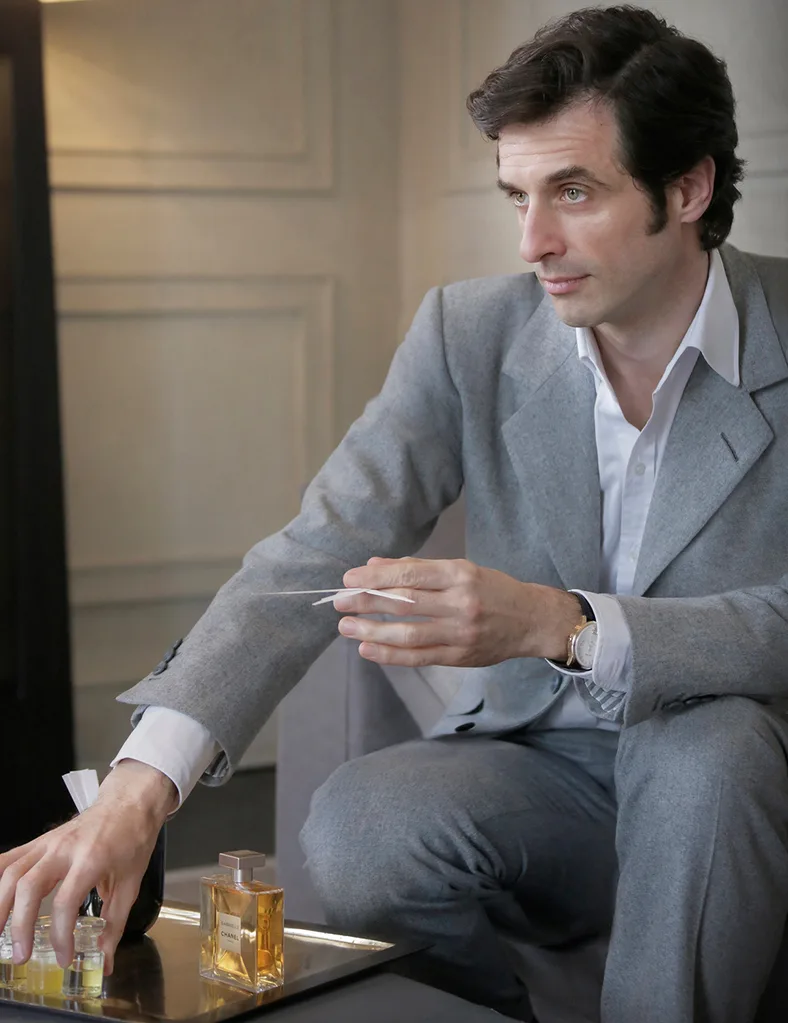
JF: Did you as a child dream to have a job like this?
OP: I didn’t dream about it. Since my father [Jacques Polge, Chanel’s head perfumer from 1978 until 2015 and creator of cult Chanel fragrances such as Chance, Allure and Coco Mademoiselle] was doing that, I was dreaming about everything but that! I studied a little bit of art history. When you have creative work, anything that can feed your imagination and your sensibility, is very important. I liked art history very much but I felt that I had to be in the making of something, somehow.
JF: When a woman selects a signature fragrance, what should she consider before you choose one? What would be your advice?
OP: The fragrance you choose for yourself; make it somehow yours. It’s the same as the way you dress, the way you express yourself, the way you move. It tells something about your personality. I like to think that there is something very intimate in the choice that you make, and it’s very hard to understand what it will be. My advice is to take your time. You have to have the time to understand the chemistry between you and your fragrance. Fragrance evolves with time, the freshness evaporates and the scent that follows is not exactly the same as the one you might smell on the top.
JF: You said something really interesting about the white florals being for a strong woman for example. Are there certain notes that apply to different personalities? What about for a romantic dreamer?
OP: What comes to my mind for a romanic is something more spicy.
JF: And the adventure-loving, active woman?
OP: I would say, maybe more citrusy, more vibrant, things like that.
JF: And what about for the fashion-forward?
OP: Fashion-forward, I would say chypre [notes]. Chypre means whisper tree.
JF: There are trends in fragrances too…
OP: Not so much, because in fashion, lets compare Chanel, we have six fashion shows per year. Gabrielle comes out 15 years after Chance. [So] we have trends in fragrance, but they are on a much longer time frame. We have room to create very different fragrances, [which is refreshing] in a world which people criticise as being too marketed.
JF: So the floral composition for this fragrance came from a private garden?
OP: We created our own raw material for yang ylang, which is a very important raw material at Chanel. We have a unique distillation that fragments the oil in a very special way to capture the freshest, most greenest part of the flower. The tuberose is another flower we cultivate ourselves. It’s not a typical Chanel flower, which is why, when we had the opportunity to grow tuberose ourselves, we thought we should do something different, to try to capture something else.
JF: A lot of people talk about the tuberose in this fragrance, but it’s not the dominant one, is it?
OP: It’s not the dominant one, but it’s the result of a long [period of] work, which gives us the opportunity to speak about how we work. We grew the tuberose and extract it ourselves, which is much more flowery, very creamy.
JF: The jasmine in Gabrielle is also very subtle. How do you decide which one is going to be more dominant
OP: That’s my job. It’s interesting, to smell the jasmine on its own because it shows the complexity of the flowers. Jasmine is one of the most complex and when we speak about white flowers, you can see here that there is a creamy side to it, but also a darker side as well.
JF: If you weren’t doing this, what would you be doing?
OP: I like music very much, and I think I have obvious links. I’m not saying I’m gifted enough to be a musician but I like music.
JF: It’s such a construction isn’t it? It’s playing with things, pulling them apart, putting them together, to build…
OP: There is a completely immaterial world. There are scents that are hard to grasp, that are not visual. Then, on the other side, perfumery is a very down-to-earth craftsmanship with oils that you mix. Each formula, each fragrance has to be compounded, each raw material has to be carefully weighed, it’s very special, precise work.
JF: When do you know “this is it; I’ve done enough”?
OP: I think instinctively you feel it, at the end also there are certain signs. The more precise your little tries are, the closer you get to where you want to go. To a certain extent, [all the Chanel fragrances] are linked together and it’s the result of never finished work.
JF: What is the most important part of your job?
OP: We all experience the situation where, all of a sudden, you smell a scent that you haven’t thought about for ten years and it strikes you straight to the emotion. Scent is an animalistic, instinctive sense. Coco Chanel created a spirit, and stayed true to the spirit of fragrances and one of the most important parts of my job is to create within that spirit.
